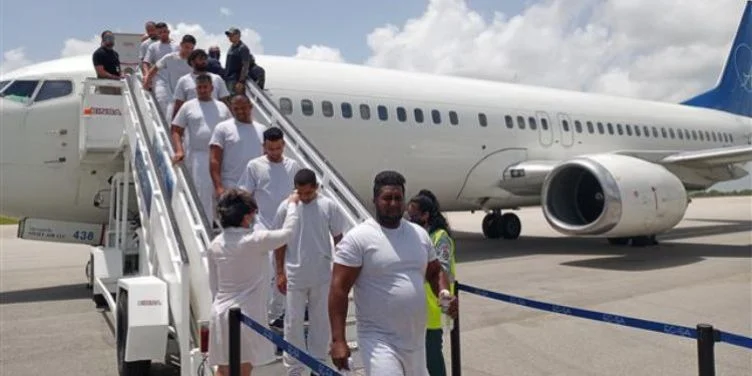MIAMI, United States. – More than 42,000 Cubans currently in the United States have final deportation orders, according to a report from the Fox News channel which cites reports from the Immigration and Customs Enforcement Service (ICE).
This figure is derived from a total of 1.4 million immigrants with final deportation sentences in United States territory.
With 42,084 citizens in this situation, the Cuban Government was classified by ICE as “non-cooperative” for not accepting its nationals with deportation orders in the United States. Along with the Island in this category, the names of Bhutan, Burma, Democratic Republic of the Congo, Eritrea, Ethiopia, Hong Kong, India, Iran, Laos, Pakistan, People’s Republic of China, Russia, Somalia and Venezuela also appear.
The causes that lead to the issuance of deportation orders can vary, as immigration attorney Wilfredo Allen explained to Martí News. “Entering irregularly, overstaying a tourist visa, having a request for adjustment of status rejected or having committed serious crimes” are some of the reasons that generate these types of measures.
Furthermore, in recent months there have been numerous cases of Cubans who entered the United States through the CBP One program and then did not attend their appointments before the immigration courts, Allen also said.
After the second round of migration talks between the governments of Cuba and the United States this year – and the last under the Biden Administration – the Cuban Vice Minister of Foreign Affairs of the Island, Carlos Fernández de Cossío, called “unrealistic” the idea of carrying out mass deportations from the United States to Cuba. “These deportations would be uprooting people who have made their lives in the United States,” said the official.
During his press conference, the official also specified that mass deportations were not discussed in the round of talks.
On December 4, representatives of both governments met in Havana, as part of a bilateral mechanism that resumed in 2022 between Havana and Washington and is stipulated to take place every six months alternately between both countries.
During the meeting, the Cuban side reiterated its willingness to comply with current immigration agreements and expressed its concern about human trafficking and the “aggressive” treatment that – it stated – some of its citizens receive in US airports.














